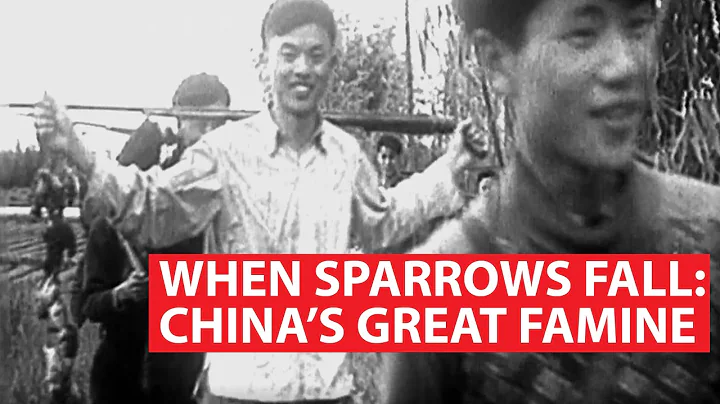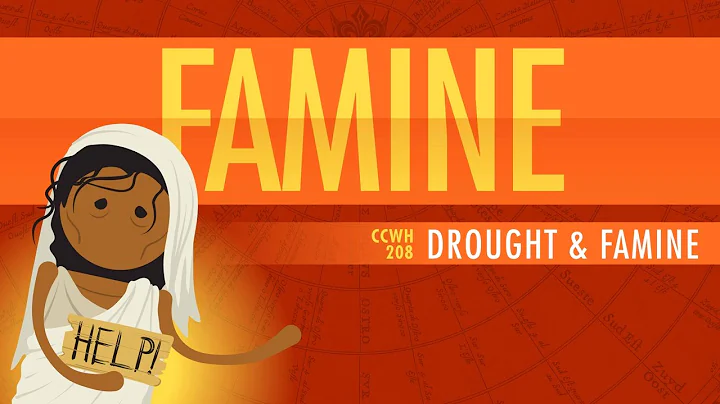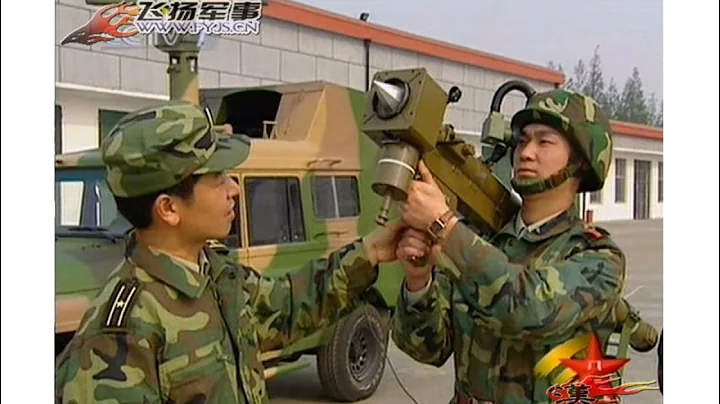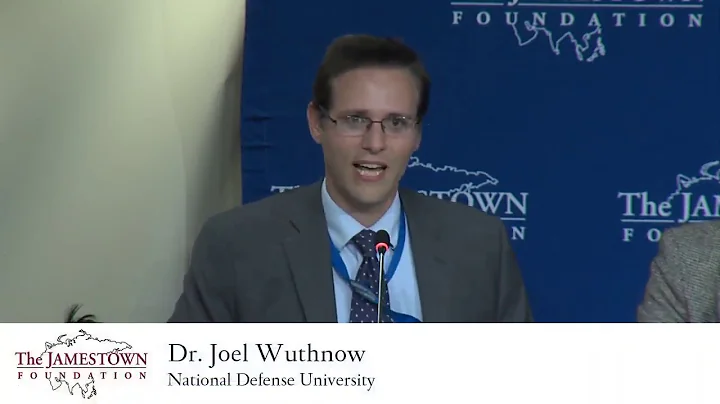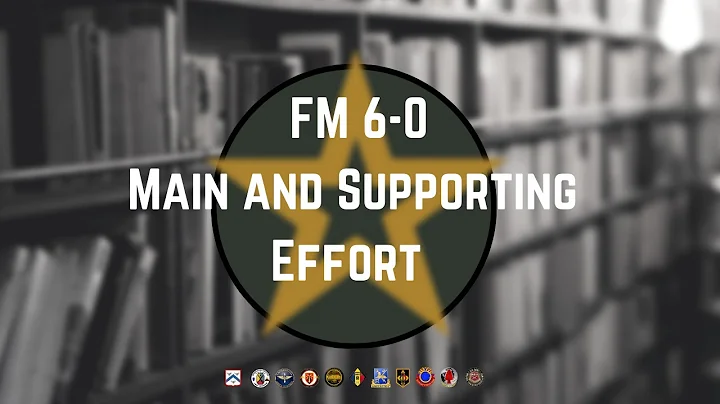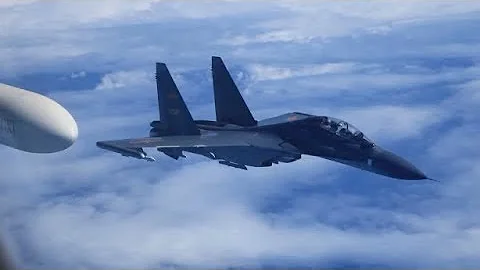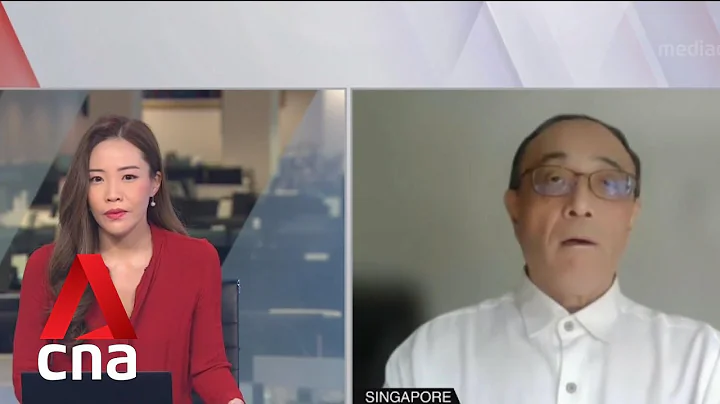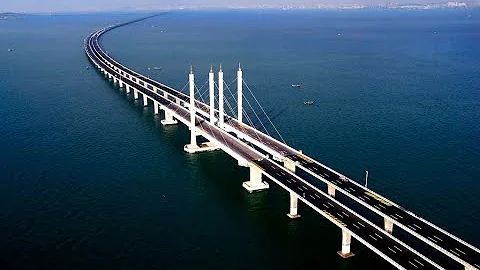The party, government, army and people worked together to save themselves through production and overcome major famines

In addition to military difficulties, natural disasters also came. In the spring of 1942, there was no rain and there was not much summer grain harvest. The spring drought continues to develop, affecting more than a dozen counties. In many places, autumn crops cannot be planted, resulting in little autumn harvest.
The disaster was even more severe in 1943. First came the drought, which lasted for eight months from spring to autumn. Many wells have dried up, rivers have stopped flowing, and even drinking water for people and animals has become a problem. The areas where famines in southern Hebei developed relatively early and were the most serious were Yuancheng and Daming in the first district, the area east of Pingda Road in the third district, Qingjiang, qiuxian, Qizhi, Guangqu, Linqing in the fourth district. The special areas are Julu , Hebei Special Zone, Xinhe , Ningnan District 3, and the sixth special area are Chuiyang, Qinghe , Jixian and other places. There was almost no harvest of summer grain. In some areas, sowing failed, and in some areas the spring seedlings died, leaving the field still white after autumn. There are 8.84 million acres of cultivated land in southern Hebei that have not been sown, and many areas have become "seedling-free areas."
Droughts are followed by floods. The soldiers and civilians in southern Hebei Province, who had suffered from drought for more than eight months, were hit by heavy rains and floods in autumn. Both sides of the Fuyang River and Wei River were flooded. After the water receded slightly, the Japanese invaders successively destroyed the canal, Zhang River , Fuyang River and other river embankments, causing the rivers to overflow. The large areas of land that had receded were once again submerged by floods. More than 30 counties were affected, and many villages became a vast ocean.
Guantao64% of the villages in the county became "water villages". 110 villages in Wucheng County were flooded. Qinghe CountyThe flooded area reached 50%. Ren County and Longping County were even more serious. Houses collapsed, people and animals drifted away, and the ruins were half submerged in the water. The scene was very miserable.
The famine in southern Hebei was caused by Japanese invaders. Since the Japanese invasion of southern Hebei, they not only flooded the fields and destroyed cultivated land, but also occupied a large amount of fertile land by building strongholds, building gun towers, building roads, digging blockade ditches, and building blockade walls. Take Guangping County as an example. There are 89 villages in the county. The enemy has built blockhouses in 10 villages, covering an area of 2 hectares. The road construction spans 56 miles, covering an area of more than 4 hectares, and a total area of more than 10 hectares. Based on the harvest of 4 buckets of grain per mu of land per year, a total of more than 1.04 million kilograms of grain is harvested in a year, which can feed more than 1,730 people. If you add in the fertile farmland destroyed and the burned-down villages implemented by the enemy's "Three Guangs" policy, the number would be even greater, leaving many people hungry, cold, and homeless. "Man-made disasters" intensify "natural disasters", and "natural disasters" intensify "man-made disasters". "Natural disasters" and "man-made disasters" are raging side by side, plunging the people of southern Hebei into dire straits.
In addition to droughts and floods, we also encounter hail and insect disasters. Hailstones as big as eggs are rare. There are so many locusts and that they can cover up the sky, which is also rare. When the locusts flew over, it was as if the sky was cloudy and the sun was no longer visible. This is not an exaggeration. Large locust swarms have a radius of several miles. Once they land on the ground, they will eat up several, dozens or even hundreds of acres of crops in an instant. Wherever the locusts go, they leave no grass behind.
According to Nangong, Julu and Longping counties, there are 524 villages whose crops have been completely eaten by locusts. It’s truly amazing how powerful locusts are. At that time, I found a history book to read. When was it published? I can’t remember the title of the book. The book records the great locust plague situation during the Kangxi and Xianfeng years of the Qing Dynasty, which is also very shocking. That book also tells an example of locust outbreaks in India. There was a locust plague in India at its worst. The railway was covered with a thick layer of locusts, and the train derailed when it came over. I really couldn't believe it at the time. I read the newspaper recently and Xinhua News Agency posted a message saying that the eastern part of Ethiopia was attacked by locusts. A large number of locusts caused the train's power unit to malfunction and even caused the train to derail. It can be seen that the records in that book are still well-founded.
Following the famine came the plague. At that time, there were dysentery, edema, and the more terrifying cholera epidemic. The whole family suffered from vomiting and diarrhea. Some died within one or two days of illness, while others died within one or two hours of illness. The people in southern Hebei are suffering from multiple disasters and diseases. Julu County More than 5,000 people died from hunger and more than 3,000 people died from cholera.More than 400 people died in Wangshigong Village in Qinghe County in one day. In Duanlutou Town, Chuiyang County, 30 people died on the street due to hunger and illness on a market day. At that time, hundreds of thousands of people died of starvation and disease in Jinan District. In many places, "every family is adding a new grave, and every village is crying."
Some people demolished their houses in order to make ends meet and took the wood to Hebei, Luyu, Jizhong to exchange for food. That area is better than Jinan. Many people had to leave their homes and flee to other places in order to survive, and some villages became "uninhabited villages." In previous years, the harvest in the southern Hebei plain was better than that in the Taihang area. It has become overgrown with weeds and desolate.
During this time in southern Hebei, I truly realized the meaning of the words "Blessings never come in pairs, misfortunes never come alone". In the past, I mostly understood this idiom from the surface of the word, but this time I understood and experienced "Misfortune never comes singly" from practice, and it was much more profound. As the saying goes, "If good fortune does not come in pairs, misfortune will come again." When a disaster comes and you don't have enough food and clothing, your body will inevitably become weak and more people will get sick. People are sick and there is a lack of medical treatment. The weather is dry and dry for a long time. Once it rains, there are often heavy rains and even flooding. The longer the drought lasts, the more likely it will be hail when it rains. The four words "Misfortune never comes alone" vividly reflect the misery of the people in old China during the famine years.
At that time, the troops also had limited meals. One thing the chief secretary often says when eating is "it doesn't matter if you are in charge, you are not satisfied." Some of our county magistrates were so hungry that they fainted on the ground. At that time, the cadres and the masses shared the joys and sorrows, and there was no specialization at all. Once I went to a village in Quzhou County, , and met a family of women giving birth. The child has been born, there is nothing to eat at home, and the adults and children are in danger. Seeing this situation, we were extremely sad and gave her a 3D catty Xiaomi , which saved the mother and son. She was very grateful. At that time, the relationship between the military and the civilians, as well as the relationship between officers and soldiers, was very good. They truly lived and died together and shared adversity. My second daughter was born at this time and I placed her in the homes of ordinary people in Nanxindian, Qiu County. According to regulations, 30 kilograms of millet are left to the wet nurse every month. These 30 kilograms of millet could solve a big problem at that time. It could not only feed the children, but also greatly support the landlord's family of three. After the "Cultural Revolution", the landlady came to Beijing to visit us. We thanked her repeatedly for adopting our daughter, and she thanked us in turn, saying that 30 kilograms of millet per month also helped them tide over the difficulties in this famine year. . The landlord's house is very close to our underground hospital. My second daughter often goes to the hospital with a bowl, and people give her a spoonful of it. This is how she grew up hungry.
My third daughter Song Shihuang was placed in the home of a common man in Yuancheng County . She was hungry and sick and died within a few days of being brought back. At that time, it was not just ordinary people who suffered from hunger, some died of hunger or illness. We cadres also suffered from hunger, and some of our family members were also killed by famine.
It is indeed rare in history to encounter such a large and numerous natural disasters for such a long time.
Drought, floods, locusts, hail and plague are truly the "five poisons" that seriously threaten the survival of the military and civilians in southern Hebei. The enemy's frequent and brutal "mopping up" and "encirclement and suppression" campaigns caused heavy losses to southern Hebei, and the anti-Japanese soldiers and civilians made huge sacrifices. But this is not terrible. As long as the army and the people unite and fight together and share the same hatred, they can continue to fight the enemy. It is impossible for the Japanese invaders to drive us out of the southern Hebei Plain. And we, no matter how difficult and difficult it is, will eventually drive the Japanese invaders out of southern Hebei. But a famine of this magnitude is truly terrifying. If we fail to solve the problem of disaster relief and famine relief, we may be driven away by famine. Many people have left Jinan with their children and fled to other places.
Persisting in the War of Resistance in Southern Hebei, the most urgent task is to solve production and disaster relief, survive the famine, and stabilize people's hearts. How to fight the Japanese when you are hungry? The leading comrades of our district party committee, administrative office and military region have held many meetings to study and deploy production disaster relief work to alleviate the famine. The Administrative Office and governments at all levels have established disaster relief committees to lead various regions to provide relief to victims, and actively seek ways to issue loans, adjust food supplies, and provide relief to victims. We borrowed 3 million jins of grain and 500,000 jins of wheat seeds from the Hebei, Shandong and Henan District and transported them back to southern Hebei. Some of them were used to provide relief to the masses, and some were used to prepare for next year's production.In fact, the Hebei, Shandong, and Yu districts were not wealthy, and they had just survived the famine. Comrade Jinan was very moved by their noble style.
The Northern Bureau , Shanxi-Hebei-Shandong-Henan Border Region Government and the 129th Division are very concerned about the disaster in southern Hebei and actively support production and disaster relief in southern Hebei to overcome the famine. In 1943, the border region government successively issued more than 7.4 million yuan in spring plowing loans and relief funds (Jinan invoices, the same below), and more than 648,000 kilograms of grain loans and relief grains. After the autumn floods, the border region government lent more than 1.9 million kilograms of wheat seeds to Jinan, distributed more than 3.265 million kilograms of relief grain, and a large amount of food. With food, the mood of the people gradually stabilized.
We also carried out food lending activities. We call on everyone to carry forward the spirit of unity to fight the war, help each other, and overcome difficulties. Borrowing food is a very policy-oriented job. Households with surplus grain are basically landlords. Villages that carry out grain borrowing will set up a grain borrowing evaluation team to make a fair proposal for the amount of grain to be borrowed through investigation. Speak clearly, do ideological work, avoid the situation of not being able to borrow, and lend food smoothly. In addition, we also carried out work-loan relief, organized various mutual aid groups, dug rivers and built embankments, built water conservancy projects, and carried out production self-rescue. According to the situation of continuous drought and floods, embankments were repaired to control breaches, and rivers were dredged and canals were opened to divert water.
The leading troops of the Southern Hebei Military Region, while attacking the enemy and protecting the masses, worked with the people of Southern Hebei to carry out disaster relief, assisting local governments in blocking mouths and building embankments, dredging rivers, and opening canals. According to incomplete statistics, the total length of the troops was more than 460 kilometers, helping the masses to fight disasters. There are ten thousand wells. Carry out large-scale locust hunting activities. At that time, the locust hunting scene was vigorous. The party, government, military and civilians took action together, and there were huge crowds of people. When we started hunting locusts, some people were not very clear-minded. It may be due to the influence of feudal superstition that they are unwilling to fight. They regard locusts as "divine insects" and advocate burning incense and praying, asking the "divine insects" to be merciful and not to devour crops. Some people are beggar their neighbors and advocate beating gongs and drums to drive the locusts out of the area to end the problem.
We fought too much, and some people were not happy, so we had to work patiently, and our thinking soon became clear. Times have changed. As long as the principles are explained clearly, ideological understanding can be easily solved. The army counts quantities by unit and reports them by kilogram. In local locust hunting, the government mobilized the people of each village to jointly fight, and the party, government, military and civilians fought a "people's war". Some beat with brooms, some with wooden shovels, and some with wooden sticks nailed to the soles of their shoes. Men, women, old and young all went out together, some were fighting, some were shouting, and the scene was very spectacular. In areas where there are many locusts, dig trenches with a depth of 2 feet and a width of 1 foot, drive locusts into the ditch, and then bury them with soil. This method has been used by ancient people. Historical records record that during the Kangxi period of the Qing Dynasty, when locusts were infested, ordinary people used various methods to eliminate them.
In winter, we organize manpower to dig out locust eggs and burn them. This method is more effective than burying locusts in the soil. According to some records, the Qing Dynasty also had a system that once a locust plague was discovered, the army would be dispatched to help the people catch locusts. This is supposed to be a good thing. However, the people are unwilling. Because when the Qing army arrived in the disaster area, they needed good food and drinks. How could the people in the disaster years afford it? Qing troops went to the countryside and trampled the crops. Therefore, ordinary people would rather hide it than report it. These feudal armies are more terrifying than locusts. It is better to endure the locust plague than to cause a military disaster. Our army is a people's army, and our assistance to the people in hunting locusts is very popular. The joint hunting of locusts by the military and civilians in various places has not only eliminated the locust disaster, but also realized the power of unity. As long as we are united, we can overcome no matter how great the difficulty is.
In 1943, the most difficult year in southern Hebei, Comrade Huang Jing, secretary of Pingyuan Branch, went to southern Hebei to inspect and guide the work. Comrade Huang Jing has a deep-rooted style of work. When he meets ordinary people on the road, he often stops to chat with them and conduct investigations with them. We hosted Comrade Huang Jing for dinner. The best rice was millet , and the best dishes were chili sauce and sesame sauce, and we could only give a small amount for each meal.
After the wheat harvest in 1944, the severe famine was basically over. Rural production has gradually resumed development and the situation is much better. However, it is not that simple to further develop the rural economy and completely overcome the difficulties caused by famine. It is also necessary to well solve the special problems that arise under specific conditions in disasters and famines, such as land redemption, irregular marriages, and the sale of children and daughters.If these problems are not solved properly, they may affect the recovery and development of rural production. During severe famines, some farmers sold their land to survive the famine.
After the famine, the special agency issued a land redemption order, clearly stating that any land that had been sold due to living conditions since 1943 could be redeemed at the original price. The district party committee, administrative offices and governments at all levels have vigorously helped poor farmers redeem land sold at low prices during the famine. At the same time, we led the masses to carry out activities to reduce rents and interest rates and increase capital and tenancies, also known as the "double reduction and double increase" activities. The purpose is to reduce the burden on farmers and improve their living conditions. Abnormal marriage refers to the fact that during famine, some poor farmers remarried their wives due to hunger, and some sold their children. In order to reunite the family members, the party and the government conducted a large number of meticulous investigations and tried their best to solve the problem of families and children separated during the famine. Solving these problems is crucial. It will not only help stabilize the mood of the masses and develop the rural economy, but also help further mobilize and unleash the enthusiasm of the people for the war of resistance.
Rely on the masses, take root among the masses, grit your teeth and tide over the difficulties
The two years of 1942 and 1943 were the most difficult years of the Anti-Japanese War in southern Hebei.
The enemy attacks frantically, including "encirclement," "mopping up," "blockade," "cannibalization," "security strengthening," etc. The struggle between the enemy and ourselves is extremely sharp, cruel, and complicated, with military, political, economic, and cultural aspects. and other struggles. The southern Hebei anti-Japanese base area was severely divided, and there was no area to accommodate the activities of large corps.
After the base area was divided, the villages in the base area were only 2 or 3 miles away from the enemy's strongholds and bunkers. There was no village in between, and the enemy could organize attacks and raids at any time. Fighting is possible not just every day, but every moment. It was peaceful one minute, and maybe there was a fierce battle the next.
In 1942, there were more than 2,400 large and small battles, an average of 7 times a day. In 1943, there were more than 4,000 large and small battles, an average of more than 10 times a day.
With such frequent and fierce battles, we encountered severe natural disasters that were rare in history. Droughts, floods, hailstorms, and insect disasters came one after another. The number of types of disasters, the wide range of disasters, and the length of time are unprecedented. In addition, natural disasters are accompanied by the spread of infectious diseases, which seriously threatens the survival of the anti-Japanese military and civilians. It can be described as a natural disaster and a man-made disaster, and the suffering is unspeakable. The past two years have been really difficult. I have to endure the time and "look at the clock and watch the sun not move." This feeling is something you can't understand without the practice at that time.
After the "April 29" mass siege, the Northern Bureau of the Central Committee of the Communist Party of China appointed me as Secretary of the Party Committee of Southern Hebei District and Political Commissar of the Military Region, and I was appointed in times of crisis. At that time, I was still the director of the Jinan Administrative Office, a leader of the party, government and military, and the burden on my shoulders was even heavier. We closely rely on the correct leadership of the party, rely on the support and support of superior leaders and the people, persist in the struggle, and persist in the base area.
The Northern Bureau, the Eighth Route Army Headquarters and the 129th Division are very concerned about the serious situation in southern Hebei. In early May, Chiefs Liu and Deng clearly pointed out: After the setback of the "April 29", there will inevitably be a sense of defeat among cadres and troops, and they will even doubt whether Pingyuan can persist in the future, and these problems will also occur in the local area. It instructs us that we must improve the confidence and courage of our troops and local governments in the struggle, and fully understand the seriousness of the situation and the cruelty and long-term nature of the struggle.
In late June, the Northern Bureau also reminded us: Southern Hebei is in serious danger, and this serious situation is still developing. We are required to overcome pessimism in the face of difficulties and dangers, increase our confidence in persisting in the war of resistance in southern Hebei, and protect Mass power. He called on the Jinan District to "coexist with the entire party and the entire army and the millions of people in southern Hebei."
We followed the instructions of the Northern Bureau and Chiefs Liu and Deng, and based on the serious situation that the southern Hebei District was divided by the enemy, in early October 1942, an enlarged meeting of the district party committee was held. The main leading comrades of the party, government, and army in southern Hebei were all present, and everyone made an in-depth analysis. The serious situation of the struggle in southern Hebei District further studied the favorable conditions for persisting in the struggle and the degree of current difficulties. Leading cadres at all levels are required to base themselves in southern Hebei, work hard, persist in struggle, and stick to their base areas. No matter how difficult the environment is and how cruel the struggle is, they will never leave the southern Hebei plain."The county does not leave the county" (meaning that the activities of the county party committee, county government and county guerrillas do not leave the county and persist in the struggle in the region). The Jinan Party and the Eighth Route Army have always been with the people of southern Hebei and are determined to breathe with the people of southern Hebei. , share destiny, share life and death. The
District Party Committee made the "Resolution on Overcoming the Difficult Situation This Winter and Next Spring" based on the spirit of the enlarged meeting. The serious and difficult situation this winter and next spring will not be alleviated or changed. All work must be based on the most serious, difficult and difficult situation. Consolidate your ideological position, make long-term plans, accumulate strength, and wait for the opportunity. The anti-Japanese soldiers and civilians in southern Hebei expressed their determination to fight the enemy to the end in various ways.
In order to adapt to the struggle situation at that time, we determined different struggle policies, tasks and forms of struggle for different regions in order to continue to persist in the struggle and maintain the base areas.
In areas where the enemy has ruled for a long time and is more consolidated, we adhere to the policy of "long-term concealment and accumulation of strength", focus on strengthening the party's secret work, carry out social united front work, and carry out puppet army and puppet organization work. At the same time, we will not relax our efforts to unite the basic masses and guide their daily legal struggles. The so-called legal struggle is to adopt a "revolutionary two-sided policy" and use the little legality within the enemy's rule as a cover to accumulate anti-Japanese strength and protect the interests of the people. The various organizational forms of villages that adopt this strategy are completely pseudo-organizations on the surface, but in essence they are anti-Japanese, which is the so-called "white skin and red heart."
In areas that are close to the enemy's main lines of communication and strongholds but whose rule is relatively weak, on the one hand, they insist on secret work, on the other hand, they unite and organize the masses, carry out covert armed struggles, and expand the political influence of the anti-Japanese government and the anti-Japanese army. In this kind of hidden struggle, we must pay attention to taking action in a timely manner and stopping when enough is enough.
In the guerrilla zones where the enemy has the upper hand, mass guerrilla warfare is carried out extensively, cooperating with the two-sided regime of the revolution, protecting the interests of the masses, destroying the pseudo-regime, carrying out anti-"encroachment" and anti-"maintenance" struggles, containing and consuming the enemy, and preventing With the sluggish enemy, we advance towards our base area.
In our guerrilla base area, we actively carry out armed construction, mobilize the masses from the daily struggle to defend the masses, transform the village political power, unite all strata of society, strengthen the mass guerrilla warfare, and prepare to deal with more dangerous environments.
According to changes in the goals, tasks and forms of struggle, the organizational form must also change accordingly. We will implement leaner troops and simpler administration, tighten leadership agencies, and make all leading agencies militarized. Government organizations, following military operations. Brigades and divisions were merged, and the regular army further implemented localization, using companies, platoons and even large squads as independent action units to carry out guerrilla warfare.
"Better troops and simpler administration" is a very important policy, which the Party Central Committee attaches great importance to. At the end of 1941, the Party Central Committee emphasized that the most important condition for the long-term persistence of the Anti-Japanese War behind enemy lines is whether the people in the base areas can feed us and maintain their enthusiasm for resisting Japan. If the people's power is quickly depleted and the people become passive due to being overburdened and become separated from me, then it will not help no matter how correct our other policies are.
The Central Committee requires our party, government and military leaders to have a deep understanding of this point. In accordance with the instructions of the Party Central Committee and the 129th Division to "better troops and streamline administration", in the two years of 1942 and 1943, the military region was streamlined and reorganized six times.
After the reorganization, the military region headquarters only retains 4 departments and 11 cadres. The Political Department of the Military Region usually only has Director Liu Zhijian and one secretary responsible for the overall work of the Political Department. There are only 161 people in the military region-directed teams. Local agencies have also been streamlined, with some county governments retaining only two people, the county magistrate and secretary, and only three county party committee members.
The troops also reduced food rations, strictly limited the number of people eating, stopped paying groceries, office expenses and various miscellaneous expenses, cut back on food and clothing, and worked with the masses to tide over the difficulties.
In the process of elite troops and streamlined administration, the Party's unified leadership has been further strengthened. The main leaders of each division have participated in the standing committee of the prefectural committee, the secretary of the prefectural committee is also the political commissar of the military division, and the secretary of the county and district committee is also the political commissar and instructor of the county and district guerrillas. The Central Bureau and branch bureaus, the representative organs of the Party Central Committee, and the district Party committees and prefectural committees are the highest leading organs in each region. Party committees at all levels are composed of the main responsible cadres of the party, government and military.The main force must accept the unified leadership of the local party committee. "Everything is subject to war" is the highest principle of unified leadership.
After many areas became guerrilla zones or enemy-occupied areas, the anti-Japanese sentiment of the masses was frustrated. The enemy's arrogance is very arrogant, and enemy agents and traitors are extremely active. In order to combat the rampant activities of enemy agents, protect the interests of the masses, stimulate the anti-Japanese enthusiasm of the masses, carry out work in enemy-occupied areas, and implement the struggle policy of "the enemy advances, we advance". After careful investigation and preparation, the military region and district party committees selected some cadres who were familiar with the situation in the enemy-occupied areas and had close contact with the local people, organized more than 20 capable armed work teams (referred to as armed workers ), and secretly entered the enemy-occupied areas , visit local gentry, celebrities and influential figures, publicize the policies of our party and the anti-Japanese government, and carry out social united front work. Severely punish a small number of traitors and enemy agents who have committed many evil deeds and aroused great public indignation to combat the enemy's arrogance. Killing one person serves as a warning to others, demonstrates our power, and supports the victims.
We also broke some of the troops into pieces and formed many small dispersed units. They were led by capable cadres and dispersed to various counties to carry out guerrilla warfare. Small units and armed workers teams are combined to penetrate into the "lattice network" to carry out work in enemy-occupied areas and enemy-contact areas, turning enemy-occupied areas into guerrilla areas and guerrilla areas into guerrilla base areas, creating small base areas and expanding room for maneuver.
We have also learned from the experience of carrying out tunnel warfare in Jizhong, and will use it to build tunnels with strong walls and hiding places, and gradually develop them into tunnels that can be hidden and fought. In some villages, tunnels connect every household, and in some villages, tunnels have been dug between villages. The better place to carry out tunnel struggle in Jinan District is the Fifth Military Division, which is close to Jizhong.
The southern Hebei region also created a method of "reforming the village shape" to fight the enemy, and combined "reforming the village shape" with carrying out underground struggles to preserve themselves and eliminate the enemy. The so-called "reforming the village shape" means blocking the street entrances or alley entrances in several directions in a village, leaving only one entrance and exit, connecting some courtyards in the village, and building hidden shooting holes in appropriate places. In this way, a village becomes an above-ground "fortress". During the most difficult period of the Anti-Japanese War, our anti-Japanese soldiers and civilians used overpasses and bunkers on houses, retaining walls in villages and streets, and tunnels in and outside villages to attack the enemy and persist in and develop the guerrilla war in southern Hebei.
Commander-in-Chief Liu and Deng saw that our southern Hebei province was having too many hardships and that too many cadres had died. In order to preserve the cadres, he sent a telegram to ask for our opinions and moved the district party committee and the military region's leading organs to the west of the Pinghan-Hankou Railway. This was considered strategically by Liu and Deng. Several of our leaders met to discuss whether to move or not. The division chief cared so much about Jinan, and everyone felt warm in their hearts. As a result of the discussion, everyone said that they could not move to the west of Lu, but stayed where they were and gritted their teeth and persisted in the struggle. The masses are very familiar with us. If we leave, it will have an impact on the mood of the cadres and the masses. As long as we stay in southern Hebei, it doesn't matter if we don't speak. If we go among the masses a few times and the people see us and meet with the masses, it will be an encouragement to the masses. It will have the effect of political work and strengthen everyone's confidence. . When the people see our horses, they know that they belong to someone, and they know that Chen Zaidao, Song Renqiong and other leaders are still here.
We have taken deep roots among the masses. Compared with when we first arrived in southern Hebei, things are very different. At that time, the people in southern Hebei did not know us. Arrive at people's homes. The older girls are afraid to meet each other and avoid us. After a period of mass work, he got to know us better and started showing up. As time passed, we got to know each other better and became as close as a family. We all live in the same courtyard with the old man, the old lady, the girl, and the daughter-in-law. Good houses are available for us to live in, but the whole family would rather squeeze together. The military-civilian relations at that time were truly harmonious. If we leave for a few days, when we come back and enter the door, the people will say: "Ah, we are back again." They seem to have been looking forward to it for a long time and come out to greet us very happily. Although this is an ordinary sentence, it contains deep affection for the soldiers. This is a sentence that has been condensed between the military and civilians after much work.We entered the yard and found out which house we were living in. We still lived in that house. It felt like we were back at home.
After the results of our discussion were reported to the division headquarters, Liu and Deng agreed with our opinions. Our leading organization did not move to the west of the road. Together with the vast number of soldiers and civilians, we continued to fight in southern Hebei no matter how hard and difficult it was. Later, the central government considered the room for maneuver in southern Hebei and placed six counties under the jurisdiction of the three divisions of Hebei, Shandong and Yu: Tangyi, Guanxian, Puxian, Qingping, Chaocheng, and Linqing under the jurisdiction of Hebei. South, was changed to the Seventh Army Division of Southern Hebei, with Zhao Jianmin as commander, Xiao Yongzhi as political commissar and secretary of the prefectural committee (Xu Mengxia took over after Xiao Yongzhi died), and commissioner Zhou Chiheng. As we cross the Weihe River, we have a lot of room for movement. If it's really difficult, you can jump over the Wei River and take a rest.
In order to reduce the burden on the people of southern Hebei when severe famine occurred, the main regiments such as the Cavalry Regiment, 771st Regiment, 10th Regiment, 20th Regiment and 21st Regiment were successively transferred out of southern Hebei in 1943. In order to retain cadres, a group of cadres were selected to study in Taihang and Yan'an. Comrades Chen Zaidao, Liu Zhijian, Fan Chaoli, Zhong Hanhua and other people went to Yan'an. Xu Shenji also went to Yan'an after he was transferred to Taihang. Later, they all participated in the Seventh National Congress of the Party as representatives. Comrade Wang Hongkun also went to the Northern Bureau Party School to participate in the rectification movement. There are also a large number of party, government and military cadres from southern Hebei who went to remote towns to participate in the rectification and rescue movement, called the rear echelon. During the rescue movement, "leftist" practices appeared, which hurt many comrades.
A small number of cadres were left in southern Hebei to persist on the spot, known as "cadres with gritted teeth." In the southern Hebei region, Wang Renzhong, Zhu Guang, Wang Yunrui and I were left behind. The number of agencies and directly affiliated teams was very small, less than 200 people. The district party committee, administrative office and military region's logistics organization had all gone underground. I was wearing four hats at the time. In difficult times we all wear civilian clothes. When the enemy was discovered, they were divided into two groups. Wang Yunrui commanded one group and I commanded the other group. When you go to a place, cadres and soldiers all sleep in the same house. Whether they are officers, soldiers, or cooks, they all sleep on the floor.
Dog barking can easily expose the target. In order to keep it secret, we started a dog hunting campaign. At that time, the confidentiality work was very good. One group lived in the east end of the village, and the other lived in the west end of the village. No one knew who was who. After dawn, we saw that they all lived in the same village.
In order to tide over the difficulties, we not only help the people to engage in production self-rescue, but we also organize production self-rescue ourselves. Comrades Ren Zhong, Yunrui and Zhu Guang and I pulled plows and farmed in the north of Qiu County. There were no livestock at that time, so we had to organize people to pull the plow. Even if we have livestock, it won't work. Without food to feed people, there will be no food for the livestock. Four of us plus eight guards pull one plow and farm three acres of land every day. At the beginning, I felt relaxed, talking, laughing, and singing. It felt very fresh to do such work. However, after an hour, the situation was different. There was no more laughter, even less singing, and no one was too tired to talk. By the time it was almost dark and it was time to call it a day, people could barely move a step. Sometimes the guards joked with me: "Political Commissar, you have bent the rope."
At that time, production and cadres participated in labor, not just for a day or a week, but for half a month or more. . Don't do any other work. If there is a war, fight the war. If there is no war, just farm the land with the people and produce a little by yourself. In the army, whether they are commanders or political commissars, or local commissioners or county magistrates, everyone works hard and without compromise.
During the Anti-Japanese War, during the most difficult period in southern Hebei, we gritted our teeth and fought against the sky, the earth, and the enemy, smashing the enemy's "encirclement and suppression" and "mopping up" campaigns, defeating natural disasters, and surviving famines. , won the victory.






